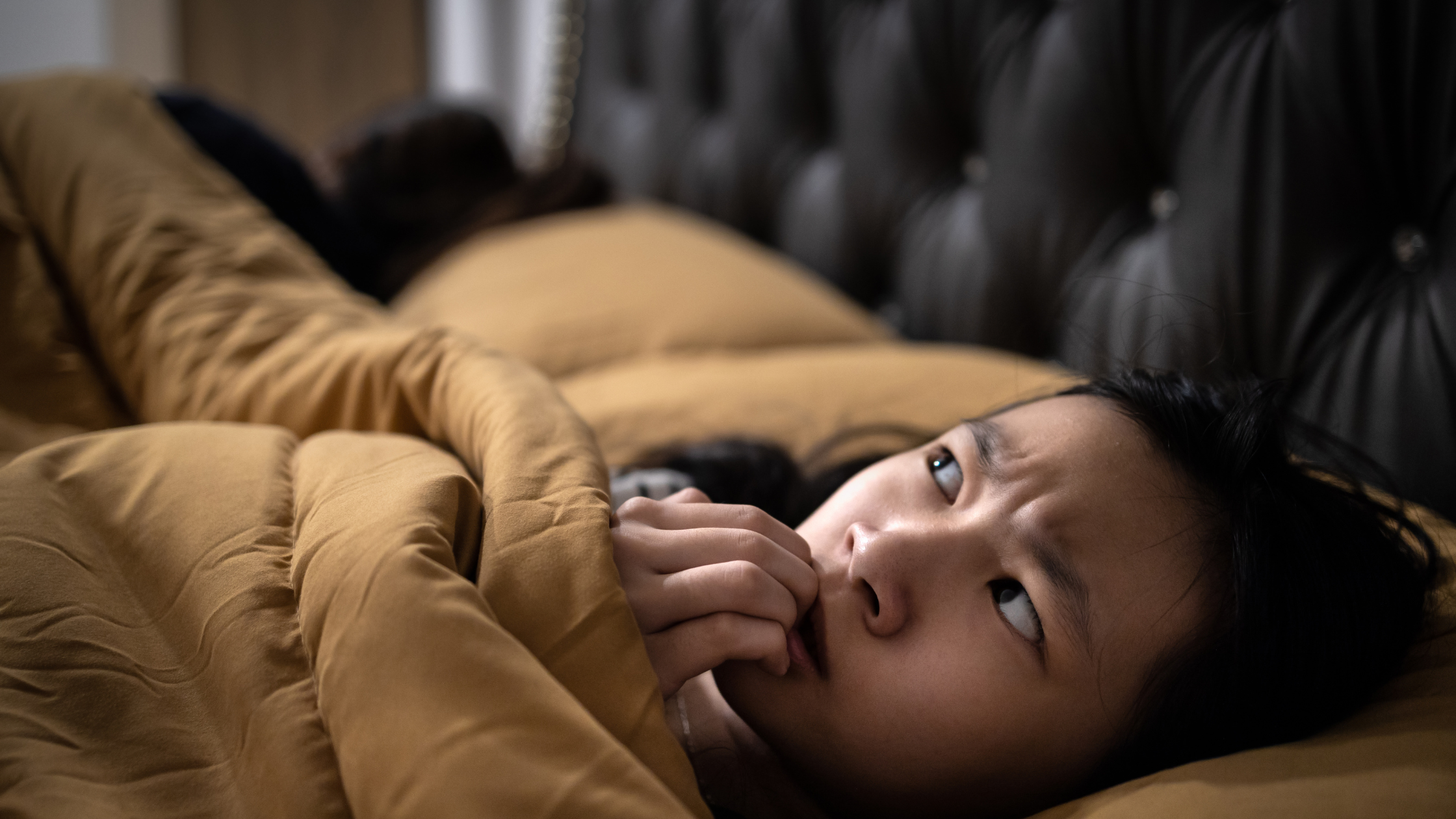
Have you ever been sleep and felt like you saw or heard something that ended up not being there? This can be quite an unsettling and frightening experience, especially when you're transitioning between sleep and being awake. Hallucinations can be caused by a lack of sleep, underlying condition, or the use of a certain substance.
One of these hallucinations is called hypnopompic hallucination which is a specific type of hallucination that happens right when you are waking up. If you experience these often, it can be helpful to determine what exactly could be the cause. Continue reading to learn more about them, and what you can do about them.
What are hypnopompic hallucinations?
Hypnopompic hallucinations are a type of parasomnia that can cause frightening experiences when you are waking up from sleep. Parasomnias are abnormal behaviors or experiences that can happen during a time where you should be asleep and resting. Any movements, talking, feelings, or anything that mimics being awake while you are asleep can be classified as a parasomnia.
Hypnopompic hallucinations are experiences that you may sense when you are waking up. It's like you can hear or feel something, but then when you actually wake up, it's not there.
They differ from dreams in the sense that they involve sensations. They are also different from daytime hallucinations in the sense that they are specific to the transition from sleep to wake. They are generally harmless, but can be frightening, especially if they cause you to jump or roll out of bed to escape something that you perceived to be there, but wasn't. Those movements can cause injury, but other than that, they are generally only emotionally and mentally disturbing.
They also are different from hypnagogic hallucinations, which are the opposite. You experience those when you are falling asleep. It's important to pinpoint when exactly these hallucinations are happening in your sleep schedule so your doctor can better understand your symptoms.
There are also complex versus simple hallucinations. Simple hallucinations lack detailed imagery. They only consist of simple shapes, sounds, very basic items. Complex hallucinations, on the other hand, involve fully realized images and scenes, that could include identifiable people, animals, etc. This detail is also important for physicians as they could help figure out what is the cause of them.
Symptoms
The main symptom that is required for a diagnosis of hypnopompic hallucinations is a visual, auditory or tactile experience that is not real, but the person experiences as they are waking up.
The hallucinations could be an extension of the dream that one was having, and include feelings or sounds that would be a part of the dream. Sometimes, it is hard to tell the difference between a dream and a hallucination.
Visual hallucinations are the most common form of hallucinations. Over 85% of these types of hallucinations are visual. This my include detailed and fully colored images, kaleidoscope patterns, flashes of light, and full on scenes.
About a third of hallucinations are auditory, and someone may experience voices, phone noises, the doorbell, music, words, or people talking.
Other sensations include tactile, like feeling weightless, falling, distortions of the body and perceiving the presence of another person in the room.
Some times, these symptoms are so real tot he person experiencing them, that they may wake up in fear. However, experiencing fear is not a dominant symptom, like in night terrors.
Causes
Hypnopompic hallucinations can be caused by a lack of sleep, various sleep disorders, taking substances, and some mental or physical health conditions. Some researchers believe that these hallucinations are just a continuation of rapid-eye-movement (REM) sleep stage. REM sleep is the stage where dreaming occurs, and is also the closest to being awake that people are when they are asleep. So, one could be dreaming, but be transitioning to the wake state, which can lead to these hallucinations if the brain doesn't fully transition from REM to being awake.
Withdrawing from certain types of drugs can also trigger hallucinations. These drugs include hallucinogenic substances like cannabis, LSD, alcohol, and medications that can affect the pattern of sleep stages.
The main sleep disorder that is associated with these hallucinations is narcolepsy. Narcolepsy is a sleep disorder where REM sleep is inappropriately placed in the sleep cycle, and one has an uncontrollable desire to fall asleep at random times of the day. Strong emotion may precipitate an attack, and can be associated with cataplexy, which is a sudden loss of muscle tone. Because REM stage happens out of order in this sleep disorder, it can lead these hallucinations being a hallmark symptom of this disorder.
Sleep paralysis is also associated with narcolepsy and hypnopompic hallucinations, as people experience these hallucinations, but are unable to move because their bodies haven't fully transitioned out of REM sleep.
Management
Often, these hallucinations are not dangerous, but can be distressing. If you experience them all the time, you may be looking for a way to manage or stop having them. Treatment for hypnopompic hallucinations can focus on education and reassurance. Many episodes resolve over time without additional treatments.
If a doctor determines that hypnopompic hallucinations are caused by narcolepsy, then they will try and treat the narcolepsy, which should diminish the number of episodes that one has of these hallucinations.
Doctors may also recommend management techniques like relaxation exercises, lifestyle or changes, or medications to reduce the hallucinations. Treatments may be aimed at the underlying cause, stopping a causative substance, or helping someone cope with the hallucinations so they are not so distressing.
If you struggle with what you think are hypnopompic hallucinations, or maybe even an underlying sleep disorder, then please click the orange button below to take a free online sleep test and talk with one of our sleep health professionals.
https://thesleepdoctor.com/how-sleep-works/hypnopompic-hallucinations/

